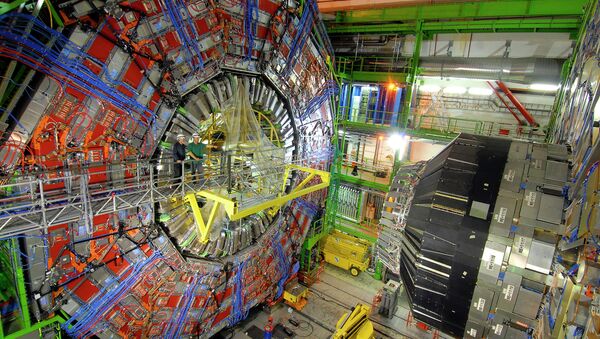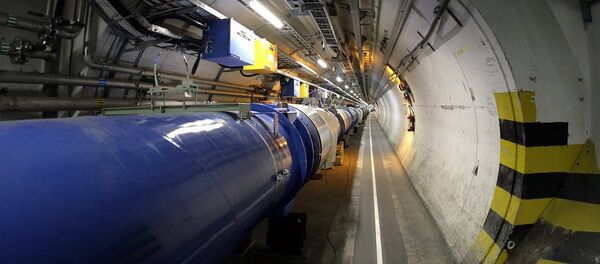GENEVA (Sputnik) — A souped-up Large Hadron Collider (LHC) will be turned back on later in March at the CERN facility in Switzerland after a two-year hiatus, to delve deeper into the mystery of dark matter, CERN's Director-General Rolf Heuer said Thursday.
Speaking at a press conference in Geneva, CERN's chief said the world's largest particle accelerator will go live for a three-year period, dubbed "season 2." The first experiments are scheduled for late May.
The revamped particle smasher is now twice as powerful as two years ago, according to CERN's Director for Accelerators and Technology Frederik Bordry.
The physicist told RIA Novosti that LHC will be able to produce collisions measuring 13 tera-electron-volt (TeV), up from the previous 8 TeV. In a year, the scientists will consider whether to take its capacity up to 14 TeV.
But, despite its increased power, the hadron collider is not likely to end the world, Charlton reassured RIA Novosti. He said the type of particle collisions that are created by scientists in its 27km (17.6 mile) ring are common in nature and occur in the upper atmosphere all the time.
The LHC was stalled for repairs in 2013 after CERN physicists discovered the long-sought Higgs boson, a subatomic particle often referred to as the "God particle" for being key to the formation of universe.




